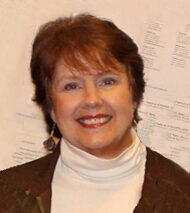
Nancy Huntting, Aesthetic Realism consultant, writes:
Is there a criterion for knowing whether a feeling of ours is good for us or not? Why is it horribly stupid—not smart—to twist the facts? Is art beautiful about both facts and feelings, and does it put these together? Read “Feelings, Facts, & What We Do with Them,” the great new issue of The Right of Aesthetic Realism to Be Known.
The commentary by Ellen Reiss begins:
Dear Unknown Friends:
Here is the third part of The Scientific Method in Feeling, by Eli Siegel. This great 1973 lecture begins with his describing the rift people make between feeling and knowing. It is a division men and women take for granted in their everyday lives, even as they’re weakened hugely by it and ashamed of it. Throughout the world and throughout the years people have seen their feelings as things they need not—and cannot—be exact about. Scientists too have severed knowing from feeling; they have seen feelings as essentially unknowable. But early in the lecture, Mr. Siegel says: “The purpose of the real scientific method would be to know a thing in the best way….The question is: can there be scientific method which isn’t at the same time fair to feeling?”
The disinclination to see our feelings exactly, be accurate critics of them, is as frequent as breathing. Yet the danger of not trying to see ourselves truly is gigantic. As Mr. Siegel once described in a lesson: if we don’t want to know ourselves we’ll misuse ourselves—in the same way that people have hurt themselves operating a big, powerful machine without wanting to understand how it works and what it is. To feel and to know are opposites, and this central principle of Aesthetic Realism includes them: “All beauty is a making one of opposites, and the making one of opposites is what we are going after in ourselves.”
How Alive Is a Fact?
In his lecture Mr. Siegel uses an anthology, the College Book of English Literature, to show that knowing and feeling are inseparable. At this point he has reached the Tudor period, which began in 1485. And as Mr. Siegel gives facts about that period, including specific dates, we see something beautiful, something that stands for him as educator and person: he presented any fact—including those that could seem dry or cold—in a way that had one feel the life in them, the electricity, even sometimes the humor. He did this not through any artificial means or clever additives. He had one feel the emotion, the meaning, in facts because he felt that meaning; and he stated any fact with such graceful truth about it and its relation to other facts, and with such fine prose rhythm, that a technical thing was reverberatingly alive. >>Read more